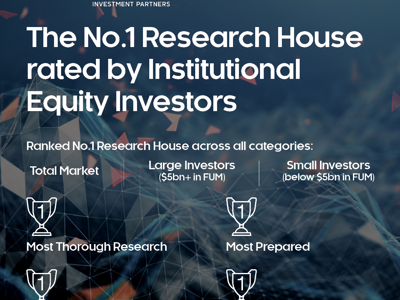Emerging markets offer growth and diversification opportunities for investors’ portfolios, but active management is essential for selecting the best investment opportunities and avoiding risky markets, according to David Wright, Investment Director with Zenith Investment Partners.
Higher economic growth rates can transform into the potential for investors to enjoy higher investment returns, particularly as emerging economies undergo economic transformation, he said.
“Emerging markets currently look compelling from a valuation standpoint compared to more expensive developed markets, particularly with some emerging countries ready to cut interest rates.
“Some emerging markets are ahead of developed nations in easing monetary policy, which is very supportive of share markets and growth potential in an already attractively valued space. This is something which we think is very appealing for portfolios going forward,” said Wright.
“Another benefit is a lack of correlation with developed share markets, providing great diversification benefits. This includes exposure to sectors not generally available locally, such as high-growth technology, which is now the largest sector in emerging markets, and that can enhance long-term investment returns,” Wright said.
However, there is no free lunch with investing and investors need to take on greater risk to achieve those higher returns.
“The main risks with emerging market investing are regulatory uncertainty, and economic and political instability. You can see that with the Russia-Ukraine and Israel-Hamas conflicts. However, there is vast diversity within the asset class across countries and regions,” he said.
“Vietnam and India, for example, are experiencing rapid economic growth being driven by factors such as increasing urbanisation, relatively young workforces and populations that are growing more rapidly than in developed markets. The governments in those countries are also supporting reforms to encourage economic growth.
“On the other hand, you’ve got some emerging market countries particularly in Latin America and South America, for example, that are facing a lot more political instability, high inflation and currency depreciation. Here, emerging market investing carries a higher risk.
“China too has been more volatile given concerns around the property sector. Its debt-fuelled real estate sector has dragged down economic growth overall, as highlighted by the collapse of Evergrande. We’re still seeing the Evergrande hangover with a material pipeline of unfinished projects and a significant decline in consumer confidence. Through our active manager selections, we are maintaining an underweight exposure to the Chinese market given concerns about the property sector, slowing economic growth and potential contagion.”
According to Wright, this highlights the importance of active management to navigate the greater risks of investing in emerging markets.
“We are very strong advocates of using active managers in less efficient emerging markets. The huge benefit of active managers is that they are spending their research time and resources on the ground in different countries meeting with regulators, politicians and importantly, researching and meeting with companies to gain greater information about investment opportunities and risks. This is essential for effective emerging market investing,” he said.



